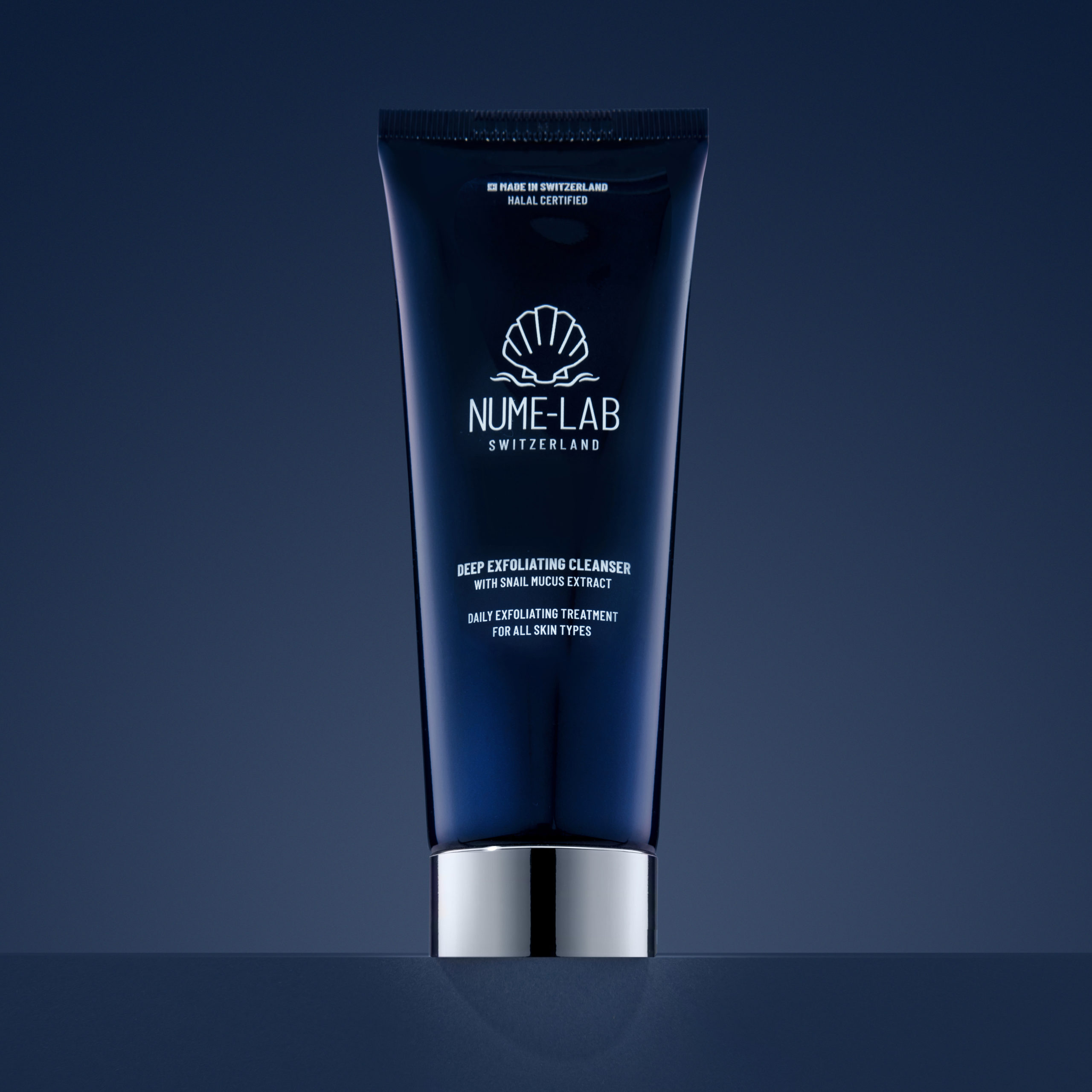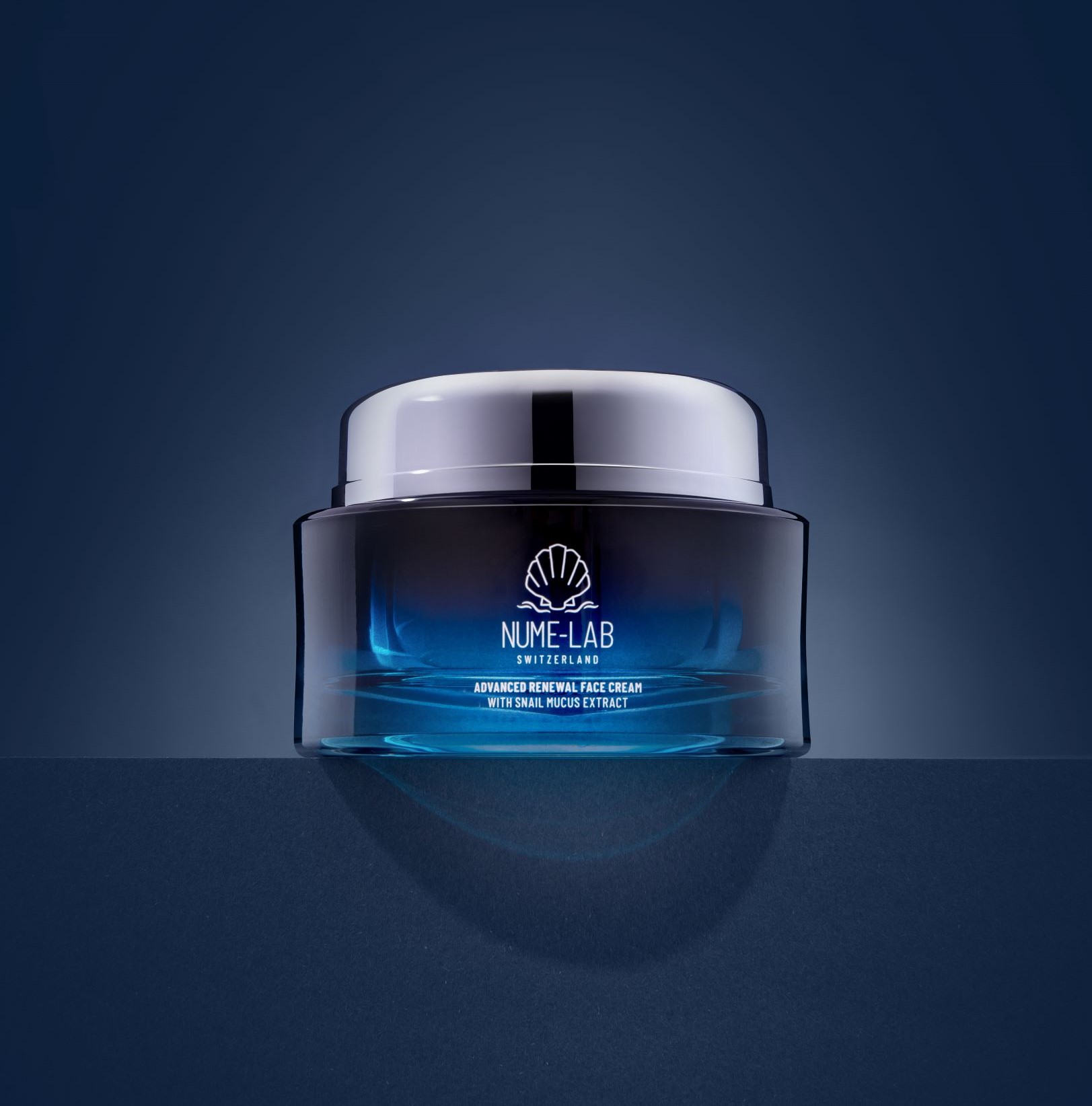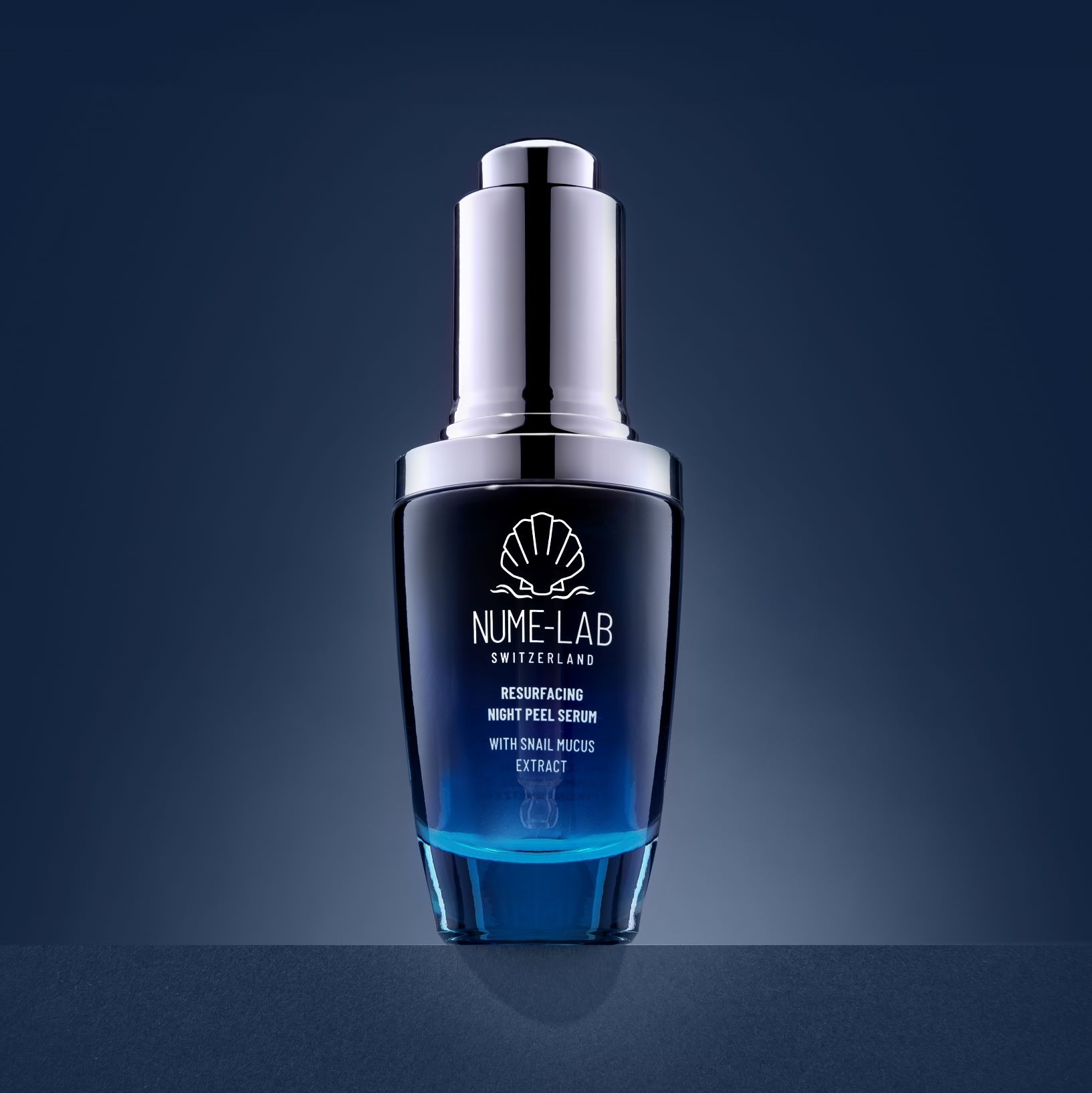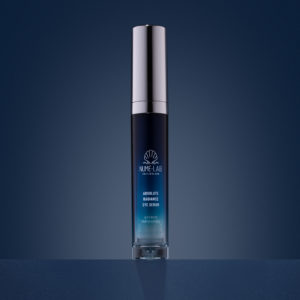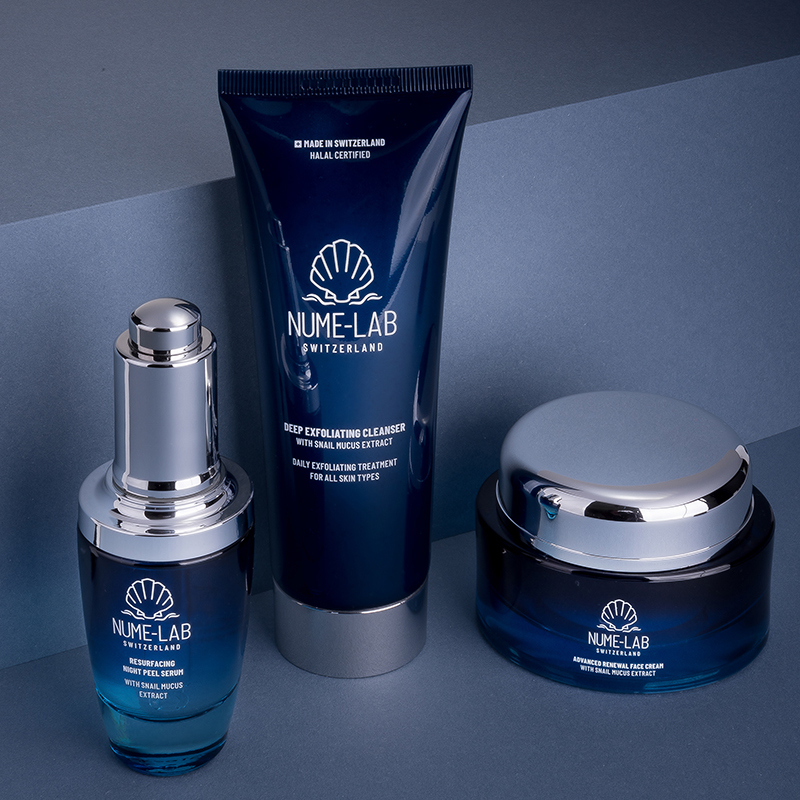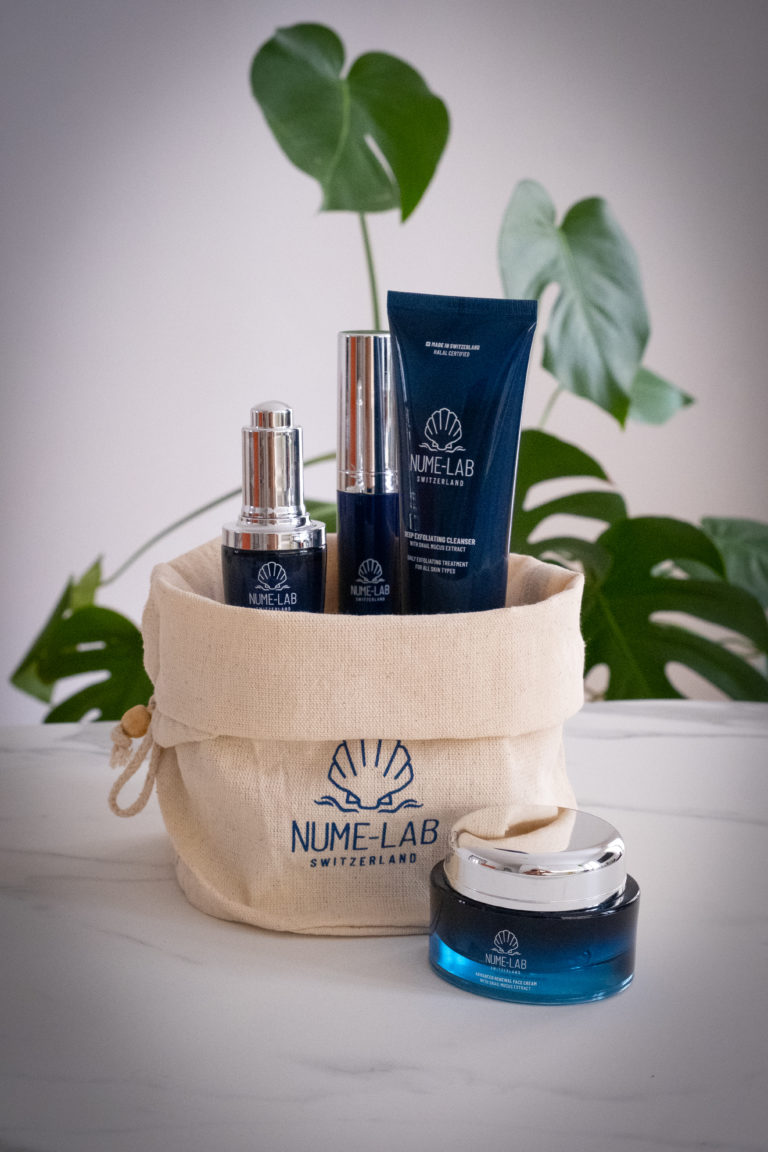Allantoin in Skincare: An Underrated Multipurpose Wonder
Allantoin is one of the most underrated skincare ingredients that recently made a loud boom in the K-beauty industry and it has been used by NUME-Lab Switzerland.
We love it since we’re all about sustainability and skinimalism, so multipurpose skincare ingredients are in our DNA. Add to that the fact that allantoin is typically a lab-made ingredient instead of wasting natural resources, and we’ve got a winner!
From hydrating to anti-aging and scar healing, is there something this active cannot do? Let’s take a look!
Table of Contents
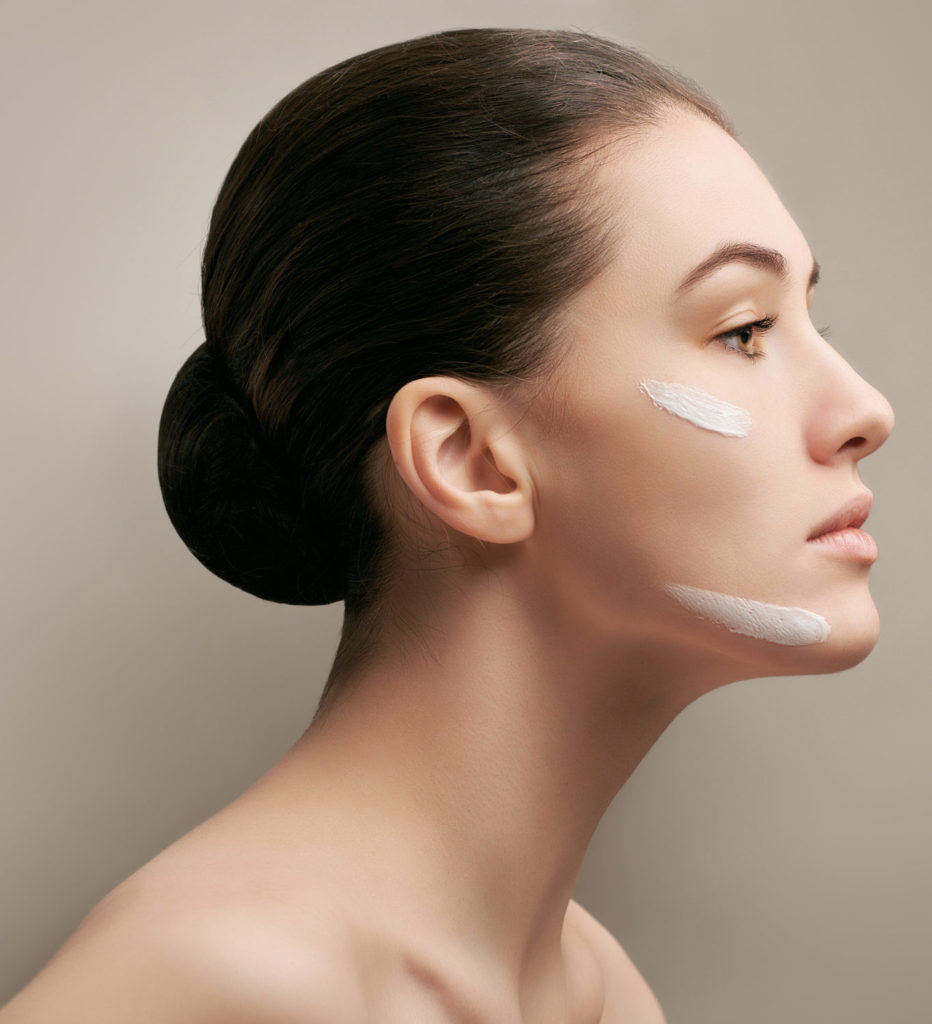
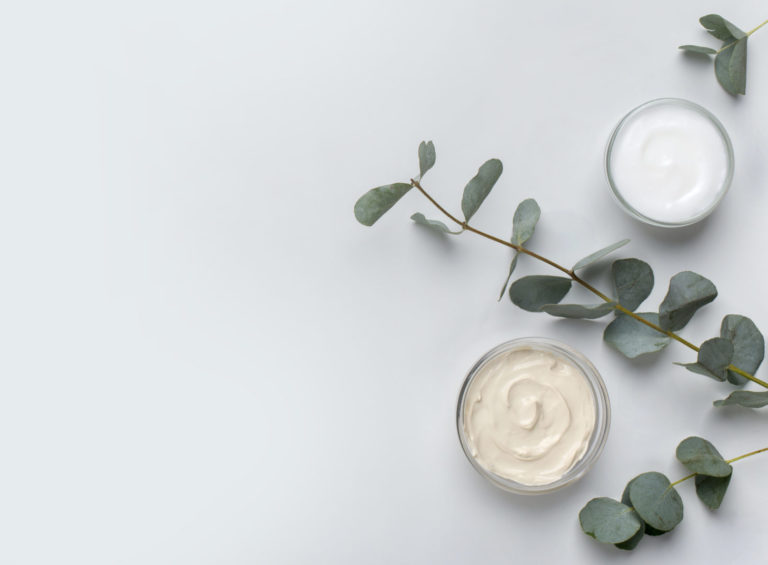
What Is Allantoin?
Allantoin, aka aluminum dihydroxy allantoinate, is a chemical compound initially extracted from the comfrey plant. In skincare, it is synthetically made in a lab. That results in a highly efficient and bio-identical cosmetic ingredient that is non-toxic and safe to use.
As a skincare ingredient, it is used for its moisturizing, soothing, and skin healing powers. This active acts as a gentle exfoliator, but it’s non-irritative and suitable for all skin types – even sensitive skin. All in all, allantoin is well-known for its ability to improve our skin texture and make it smoother. Due to its skin calming properties, it is added as an ingredient in many sunburn lotions, moisturizers, or cleansers.
The Science Behind Allantoin
It is a multipurpose wonder that will fit even the most sensitive skin. It’s an entirely clean and Halal skincare ingredient made with innovative Swiss biotechnology with tons of skincare benefits – moisturizing, exfoliation, skin healing, treating wounds, injuries, scars, and skin-soothing. These features make allantoin perfect for aging skin, sensitive skin, and dry skin – although everyone can use it!
Benefits of Allantoin
As the title of this page goes – this active really is a multipurpose wonder in any minimalist skincare brand! It offers so many skincare benefits that, honestly, we have no idea why people start adding it to skincare products only now.
Skin moisturization
It is capable of hydrating your skin deeply due to its power to increase water retention in your skin cells. With this, it can help your skin look more plump, fresh, and dewy. The moisturizing properties of allantoin make it a perfect ingredient for aging skin since it can fill out all those fine lines and wrinkles.
Gentle exfoliation
Despite its gentleness, allantoin is keratolytic, which means it has skin exfoliating properties. Its soothing effect plus its keratolytic features make allantoin a perfect exfoliator for sensitive skin. Due to its power to speed up the shedding of dead skin cells, allantoin will help you expose a new skin layer free of any imperfections.
Healing skin wounds or injuries
Due to its skin calming and soothing effect and its powers to regenerate skin cells faster, allantoin is often used in sunburn creams or scar fading creams. Some dermatologists even recommend it for treating skin conditions like eczema.
Diminishing acne scars
Same as for healing wounds or burns, it can also help you get rid of acne scars in time. Acne scars often go down into the deeper skin layers, but we know that allantoin speeds up skin cell regeneration. With this, it helps your skin shed off layers faster, thus contributing to the eventual fading of acne scars.
Anti-aging properties
Despite being an excellent hydrating agent, which is essential for aging skin – allantoin is also a collagen-booster, which only adds to its anti-aging features. With long-term use, you can slow down premature aging and keep your skin well-nourished and protected.
Better skin texture and smoothness
As a direct result of all these benefits mentioned above, it contributes to a better skin texture and smoothness in the long run. Allantoin’s features result in a more youthful-looking skin free of dryness, scars, or rough patches.
Side Effects of Allantoin
As a skincare ingredient, allantoin is known for being a non-irritant. On the contrary, its main job is to soothe and calm irritations. As such, usually, every skin type reacts well to allantoin, even sensitive skin. However, here, we’re talking about the synthetic, lab-made version of allantoin, which is tested and safe to use.
If you decide to use crushed comfrey plant leaf, for example, you might show an allergic reaction since it contains an uncontrolled concentration and other compounds.
So, when used as part of a clean beauty skincare routine free of any harsh ingredients and additives, this active should have no side effects at all. Ever heard of a minimalist skincare regime approach? Read about skinimalism here.
Who Can Use Allantoin?
All skin types can benefit from it. Based on its properties, we recommend allantoin for aging skin, skin with acne scars, dry skin, dull skin with an uneven skin tone, skin with eczema, skin with wounds, burns, sensitive skin, etc.
How to Use Allantoin?
Allantoin is gentle enough to be used daily, once or twice, as needed. You can use it combined with other complementing and nourishing ingredients like snail mucin extract, aloe vera, vitamins, antioxidants, kaolin, glycolic acid (not too high concentrations), etc.
To feel its full effects in the best light possible, we recommend using allantoin as a scosmetic ingredient in natural and clean beauty products without any parabens, sulfates, phthalates, mineral oils, formaldehyde, DEA, TEA, MEA, methylisothiazolinone, or alumina.
For instance, try our Swiss biotech deep exfoliating cleanser, which uses a cruelty-free and sustainable approach. With skinimalism in mind, we’ve combined allantoin, snail mucus, and glycolic acid in the right proportions to produce an incredibly potent yet gentle cleanser suitable for all skin types.
If you notice irritation from the skincare product with allantoin, ensure it’s not due to any of the other ingredients listed. It’s a great practice to do a test patch first!
Allantoin KEY FACTS
| INGREDIENT | Allantoin |
| INGREDIENT TYPE | Hydrator, Exfoliator, Healing, Soothing |
| MAIN BENEFITS | moisturization, gentle exfoliation, wound and scar healing, faster skin injury healing, soothing, anti-aging |
| WHO CAN USE IT | anyone, but most suitable for aging skin, dry skin, sensitive skin, and skin with acne scars, wounds, and different skin injuries |
| HOW TO USE | as part of a clean beauty routine, once or twice a day as needed. You can use it as an ingredient in a good anti-aging face cleanser, a serum, or a moisturizer |
| NOT RECOMMENDED FOR | anyone can use allantoin because it’s a non-irritant. It’s typically well-handled by sensitive skin as well. Try a test patch if unsure |
| COMBINE WITH | snail mucin extract, aloe vera, kaolin, glycolic acid (in lower concentrations because it’s also an exfoliator), vitamins and antioxidants, etc. |
| DON’T MIX WITH | high concentrations of AHAs or BHAs to avoid irritation. Allantoin fits well with all other ingredients |
Find Allantoin in Our Deep Exfoliating Cleanser!
Save now by shopping our Skincare Bundles
HEY! watch our stories about Allantoin In Clean Beauty Skincare
Lorem ipsum dolor sit amet, consectetur adipiscing elit. Ut elit tellus, luctus nec ullamcorper mattis, pulvinar dapibus leo.



